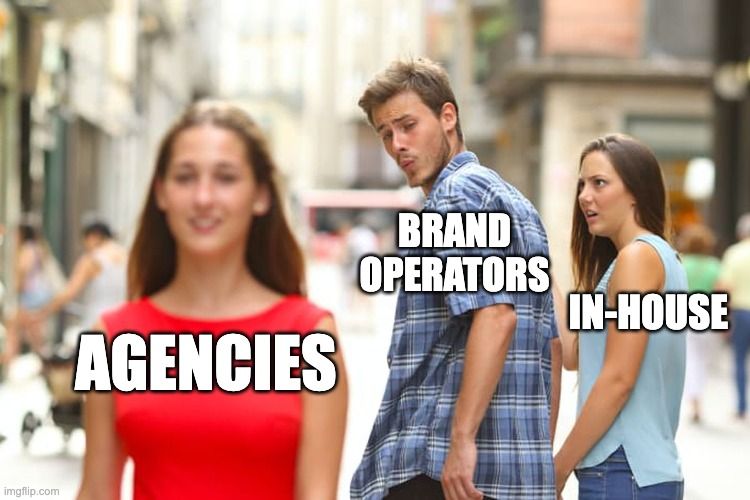It’s not easy.
There’s not a one-size fits all formula.
There’s not a “hack” for scaling (though, certainly, there can be specific tactics to implement that will work more quickly than others).
Did I answer your question already?
I kid, I kid.
But I’m also trying to front-load a crucial concept as you consider how to scale your Google Ads account. That is, like everything in life, looking for a quick and easy solution will probably be less impactful than respecting the difficult process it takes to actually scale a brand, as well as appreciating the unique qualities of each brand and vertical and the different tactics that should be utilized in each.
Caveats aside, here is what I’ve learned about scaling a brand after over a decade of PPC, while managing a variety of budgets in between tiny and large. I’ll also note an important personal observation so as you read this, you can take the whole thing with one gigantic grain of salt: I’ve never personally scaled my own brand before. I have assisted and observed and pondered, but I fully respect the fact that there are smart people out there who have actually scaled a brand through their own strategy. I have simply assisted on the Google Ads side of things, but I think there is still value in sharing learnings from observations… and that’s what this article is all about.
3 Things Necessary for Scaling Your PPC Account
Here’s what I have learned the brands who scale well share, and these are almost all lacking in the brands who fail to scale. There are likely many other things that work into it, so please see this more as my personal observations rather than a formula to follow for exact growth and please share your own thoughts and findings on social media with me after reading!
Here’s what you need to scale a brand with Google Ads:
(1) A Key Decision-Maker with a Clear, Correct Strategy
One of the crucial commonalities I have observed in brands who scale their Google Ads accounts well, is they all have some primary internal decision-maker strategically guiding the plan across multiple channels.
This may be the CMO, it may be the founder, it may be the VP of Digital. Whoever it is, likely has some fabulously brilliant strategy that they stick to, almost blindly… even when the data doesn’t always support it.
This is an important point.
Anyone who tosses around the phrase: “You can’t bring opinions to a data fight” has never seen a sound strategy implemented that seems to defy certain data-points in the short-term, yet… it works well in the long-term. Typically, from what I’ve seen, this is based around some core (perhaps, even unspoken) direction that the key decision-maker has in mind and who (at times, perhaps frustratingly) can’t be dissuaded.
We may think of someone like Steve Jobs, who could be frustrating when his private, internal compass seemed to defy all those around him, best practices, and what the “gurus” were telling him based on their data. I believe there are many “Steve Jobs” out there on a smaller scale, who have over time built a sound internal strategy or direction they want to take the brand and they stick to it.
They have a clear picture of:
(1) the brand’s strengths and differentiators and how to position those well across multiple channels,
(2) the target audience who will likely purchase said products as well as where they tend to hang out online, and
(3) the courage to move quickly on key Channel plays, even before there is evidence of the strategy working.
Sound risky to entrust a brand to someone with a (hopefully) sound brand direction that they stick to, at times, regardless of what data and gurus are telling them?
Heh, it’s exceptionally risky. Like, you better hire the right Key Decision-Maker or your brand is toast, risky.
Business is hard.
Scaling is really hard.
(2) A Refusal to Get Bogged-Down with Channel-Specific Metrics… Without Also Ignoring Specific Channels.
Number 2 flows from Number 1.
Another thing I have observed in the brands who scale well, is they are less obsessed with directly tracked individual Channel performance than they are the big picture (this flows from the top down, as increased pressure from executives to hit specific goals will lead to increased obsession with siloing channels by subordinates).
I see this almost exclusively as the polar opposite in brands who fail to scale (though there are certainly other differences, as well).
In fact, I’m to the point now where connecting with a prospect who demonstrates a refusal to look at the big picture, but instead insists on extremely specific Channel ROAS is guaranteed to be a scarily accurate foreshadowing of their near-future inability to scale.
Rather, brands who scale seem to focus well on overall Ad Spend / Gross Revenue with individual (soft) budget and ROAS targets within each channel.
Practically, this means you’re not calling your Digital Marketing agency when keyword bids increase beyond what you expected, or your Google ads ROAS dips over the last two days. It does mean you keep an eye on overall sales and total spend, while running various budget testing within Channels once you have an idea of standardized performance to begin to identify some level of incrementality per Channel.
A rising tide lifts all boats, be cautious not to kill YouTube because your tracked revenue is next to nothing, if your lower funnel Channels are performing well… that traffic has come from someplace.
(3) True Delegation of Tactics to Individual Channel Experts
Finally, the last common theme I see in brands who actually scale is they consistently (1) hire well, then (2) trust who they’ve hired to manage their individual Channels.
You likely did exhaustive analysis in finding and selecting the best agency or employee for this role, so trust your hiring process (or change it, if you can’t trust it!).
If you have hired fantastic people within your individual Channels, then leaving them alone and letting them do their job while communicating strategically can have a remarkable impact on scaling. Rather than spending time answering endless questions by you on why they’re implementing certain tactics, they can invest that time and energy into actually managing their Channel. Energy is often forgotten here. A lack of energy may be revealed in decreased performance or dip in morale, but the need to constantly defend and explain minor tactical details drains good people of essential energy. They literally can’t do their job for you as well when they are more focused on answering your “why” then they are thinking about “how” they can scale your brand.
But wait, can’t they take advantage of your trust if you’re not constantly checking up on the details?
Sure, that’s why hiring well is crucial.
If you hire poorly and trust them, they might waste thousands, or lose millions in opportunity cost (that’s really one of the core issues with hiring “Not Quite Experts” by the way. It’s not the money they waste, it’s the opportunity costs you don’t even know are being wasted).
On the other hand, if you hire well and don’t trust them, you kill morale, creativity, and energy by sending them chasing things they know aren’t going to help the account scale.
Business is hard.
Scaling is ridiculously hard.
As Jim Collins has trumpeted in his book Good to Great, get “the right people on the bus” and then trust them. If they shouldn’t be on the bus, get them off the bus.
So does this exhaustively cover scaling your brand with Google Ads? Not in the least. There are many other helpful tactics and strategies to consider that I’ll perhaps write on someday. However, hopefully this has helped give you some additional insight into scaling your brand or thinking about scaling someone else’s.
Well, there you have it. There are my thoughts on three common themes I see in brands who scale well. Have something to add? Join the conversation with me on LinkedIn or Twitter.

.jpg)
.webp)


.jpeg)

.jpg)




